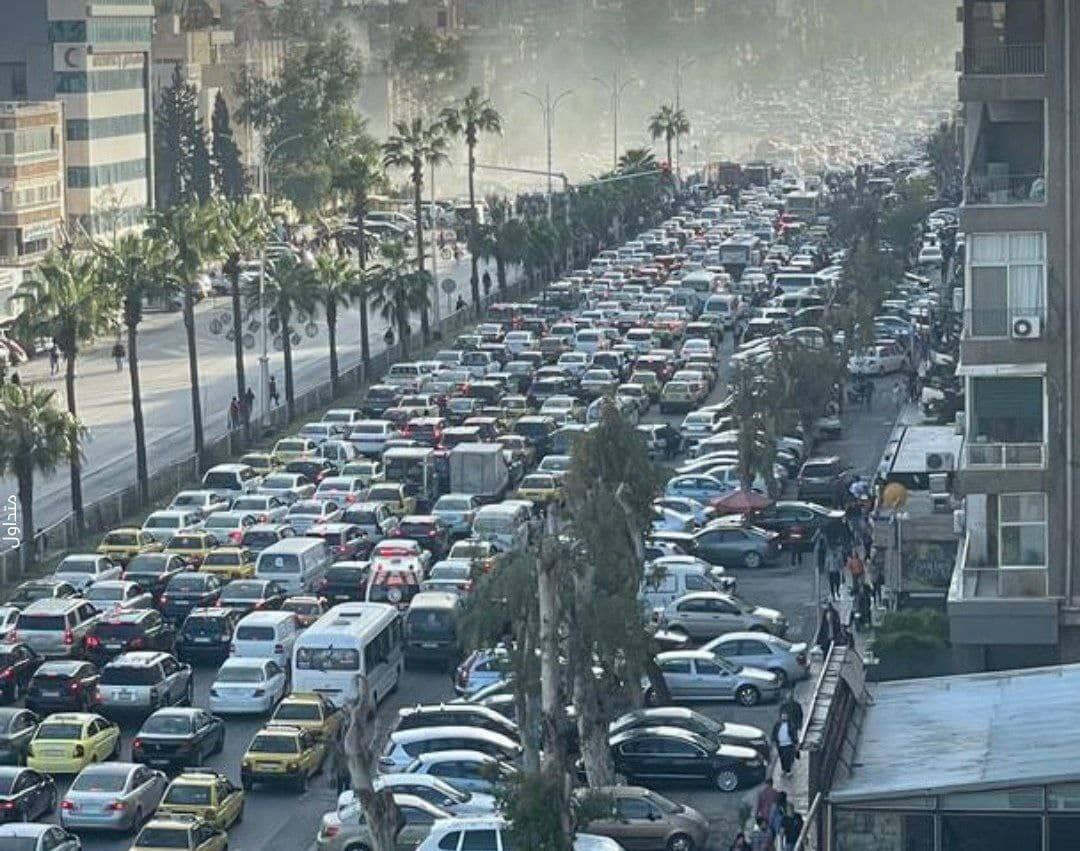Two civilians have been injured in Israeli strikes on the outskirts of Damascus on Sunday, the Syrian defence ministry said, in the second such attack on the country in a few days, Reuters reported.
Israel targeted several locations in the vicinity of Damascus with missiles launched from the occupied Golan Heights, the ministry said in a statement.
“The aggression resulted in the injury of two civilians and some material losses,” it added.
On Friday, Israel carried out its deadliest strikes in months on northern Syria’s Aleppo province as it stepped up its campaign against Iran’s proxies in parallel with its war in Gaza.
Three security sources told Reuters that 33 Syrians and six fighters from the Iran-backed group Hezbollah had been killed in those strikes. It was the single highest death toll in Israeli strikes on Syria since Oct. 7.
US sets new visa restrictions for Syrian officials
The United States Department of State revealed in the weekend in a statement that new visa restrictions will be put on Syrian officials over the oppression of the Syrian people.
“This month marked 13 years since the Assad regime began its violent suppression of peaceful protests in Syria. The regime has committed atrocities, including war crimes and crimes against humanity … Today, [US] Secretary [of State Antony Blinken] is taking steps to impose visa restrictions against 10 government officials and members of their immediate families for these officials’ involvement in serious human rights abuses,” it was written in the statement.
Washington further reaffirmed its support for Syrians, stating that no normalization of relations between the US and Syrian President Bashar al-Assad’s regime will take place until there is “authentic progress towards a lasting political solution.”
Israeli airstrike in Syria kills more than 40 people, says war monitor
Israeli airstrikes on Syria’s Aleppo province have killed more than 40 people, including members of Hezbollah and a large number of Syrian soldiers in an area near the militant Lebanese organization’s weapons depots, the UK-based Syrian Observatory for Human Rights says.
As many as 42 people were killed in what contradictory reports described as air and drone strikes in the early hours of Friday that hit missile depots for Lebanon’s militant Hezbollah group in Aleppo’s southern suburb of Jibreen, near Aleppo’s international airport, and a nearby town that houses a military facility.
According to reports, at least 36 Syrian soldiers and six Hezbollah fighters were killed in the strikes, and dozens more people were injured. There was no immediate statement from Israeli officials. Israel frequently launches strikes on Iran-linked targets in Syria but rarely acknowledges them.
“At least 36 soldiers were killed and dozens wounded,” said the group, which has an extensive network of sources in Syria. “It is worth noting that this is the highest death toll ever among regime forces in a single Israeli attack in Syrian territory.”
Hezbollah added that Israeli strikes also targeted air-defence forces sites in al-Saferah, while explosions were heard in the Kafr Joum area, in western Aleppo.
Six Hezbollah members were among those killed in the strikes, two security sources told Reuters, who had earlier put the death toll at 38. The Syrian state news agency, Sana, said civilians were among the dead and injured.
A security source told Reuters that one of the dead was a local Hezbollah field commander whose brother had been killed in an Israeli strike on southern Lebanon in November.
The Islamic State Five Years After The Collapse Of The Caliphate – Analysis
Eurasia Review published a long analysis which focused on the dynamics of ISIS five years into its defeat.
“Five years ago, the Islamic State’s caliphate was physically dismantled. The Syrian Democratic Forces, backed by the United States and its allies, played a crucial role in capturing the remaining fighters and families in Baghouz. At its peak, ISIS-controlled territory larger than Great Britain and carried out complex terrorist attacks in Europe. However, by early 2024, the organization has transformed.
While no longer anchored in the Middle East, hardcore fighters persist in Iraq and Syria. Active branches now operate in Africa, including the Democratic Republic of Congo, Egypt, Mozambique, and Nigeria. ISIS-Khorasan (ISIS-K) in Afghanistan remains a significant threat, drawing comparisons to al-Qaeda’s Yemeni branch.
The group’s decentralized structure allows it to adapt and survive, exploiting historical grievances and establishing affiliate groups in regions with weak governance.”


